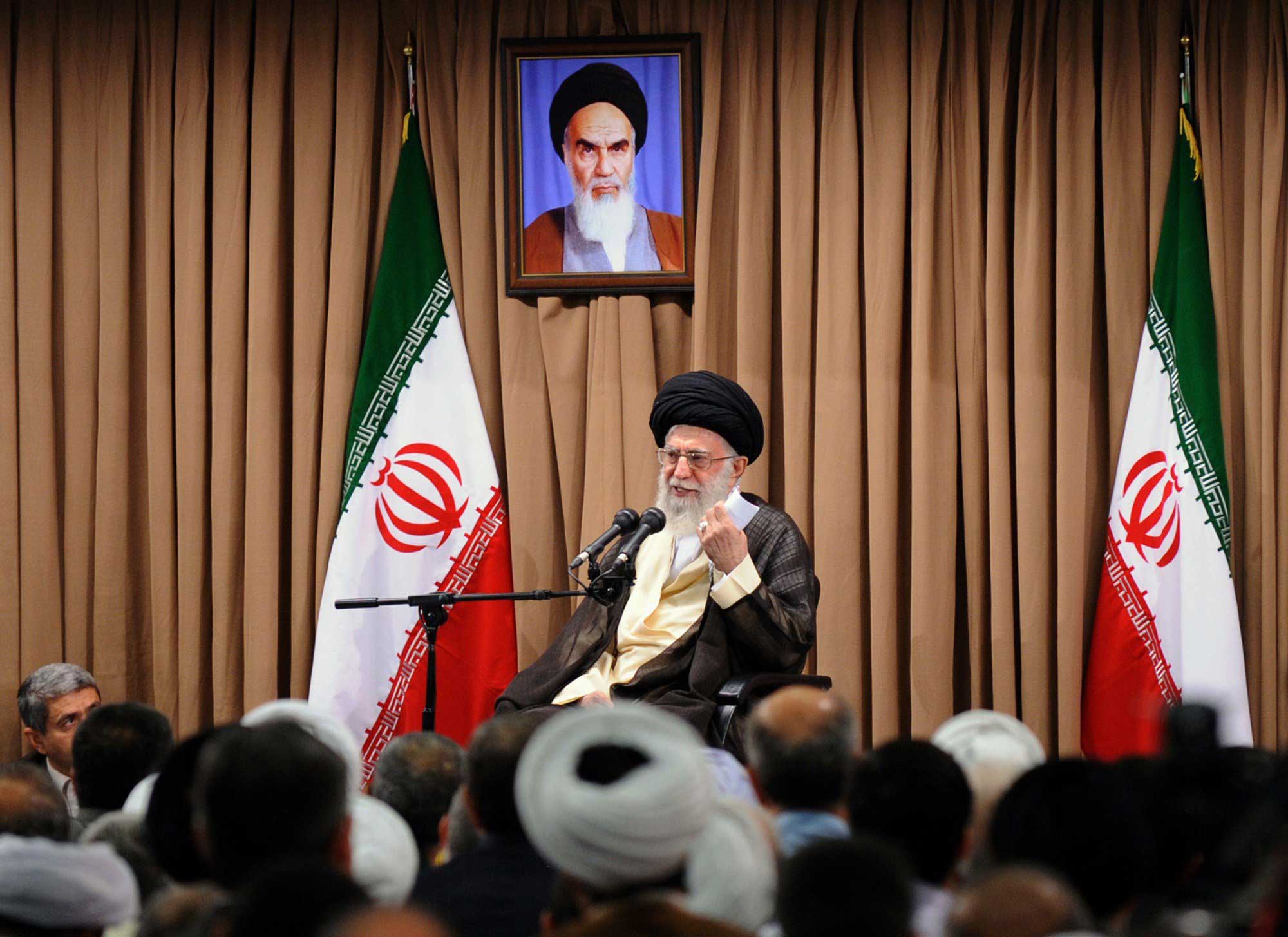
Much is made of how skillful the Iranians are at negotiating—and they are. But the Americans aren’t bad either, at least by the evidence of the latest news from the nuclear talks: an open letter signed by 18 former U.S. officials and experts, including five former advisers to President Obama, warning the president against accepting a deal that fails to include certain vital elements, such as inspections of Iranian military bases and ensuring that relief from sanctions comes only after Iran complies with an agreement.
It’s not the kind of thing you see much in American foreign policy—a group advisory like this, setting out red lines and reminding the nation’s leader of his obligations. You do, however, see it all the time somewhere else—in the Islamic Republic of Iran.
Iran’s news media is lousy with these things: Sober, sage proclamations directed to the pinnacle of the political leadership. People talk about the opacity of Iran’s governing structure, and it’s true that between the Council of Guardians, the Assembly of Experts and the Expediency Council—just to name three of Iran’s non-elective bodies —there are more moving parts than a Rube Goldberg mousetrap. But that doesn’t mean things are opaque—just complicated. Ultimate power may rest with the Supreme Leader Ayatollah Ali Khamenei, but his own political survival requires consultations with the groups and individuals who make up his own political base, and a sound reading of the larger Iranian society that ultimately will find a way to hold him accountable. So decisions by Iran’s leaders often take a long time to gestate, and sometimes even longer to emerge.
But that process is more public than you’d think for an official theocracy. Iran has a lot of newspapers, several TV stations and its share of news sites. Most may be linked to the state, but they fairly throb—or pulse, at least—with the words of a governing structure talking to itself. Most of the chatter is in Persian, of course, but it’s all public. That means it has to be read, and the State Department has people just across the Persian Gulf, in Dubai, to follow a lot of it. State quietly pays people in Iran to translate even more, so that folks back in Foggy Bottom can read it too. (“Intelligence” is a sexy word, but the CIA itself says that up to 95 percent of what it knows it finds out by reading the papers—known in the spy game as “OSINT,” for Open Source Intelligence.)
The point, though, is not what American officials read, but what Iranian officials read: “The Public Statement on U.S. Policy Toward the Iran Nuclear Negotiations Endorsed by a Bipartisan Group of American Diplomats, Legislators and Experts,” the heading of the open letter compiled by the impressive, and impressively bi-partisan group assembled by the Washington Institute for Near East Policy, a think tank. It’s the kind of discourse that speaks to Iranians, relatable and familiar. Which is fortunate, because while its authors addressed it to President Obama, the real audience was Khamenei and the rest of the government of Iran.
The June 30 deadline for a final nuclear pact is just days away, and Khamenei on June 23 delivered a speech that cast the entire enterprise into doubt—reinforced the next day with a helpful chart listing “Major Red Lines in Nuclear Negotiations,” posted on Twitter with the words “Red Lines” in red type. His timing was impeccable. The Leader pounced six days after Secretary of State John Kerry showed a bit of weakness, suggesting publicly that in a final deal Iran might not have to account for past research on a nuclear weapon.
Knowing when to exploit an opening is, of course, one mark of a formidable negotiator. But another is speaking to the other side in a language it understands—which is exactly what the U.S. side is doing with its own Open Letter.
More Must-Reads from TIME
- Donald Trump Is TIME's 2024 Person of the Year
- Why We Chose Trump as Person of the Year
- Is Intermittent Fasting Good or Bad for You?
- The 100 Must-Read Books of 2024
- The 20 Best Christmas TV Episodes
- Column: If Optimism Feels Ridiculous Now, Try Hope
- The Future of Climate Action Is Trade Policy
- Merle Bombardieri Is Helping People Make the Baby Decision
Contact us at letters@time.com